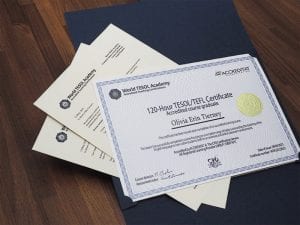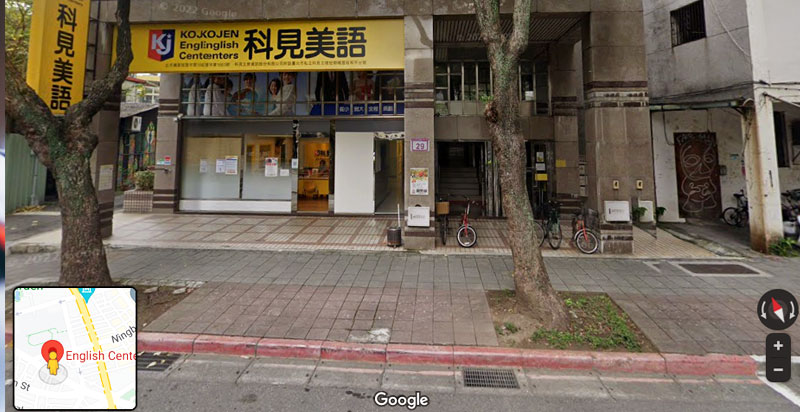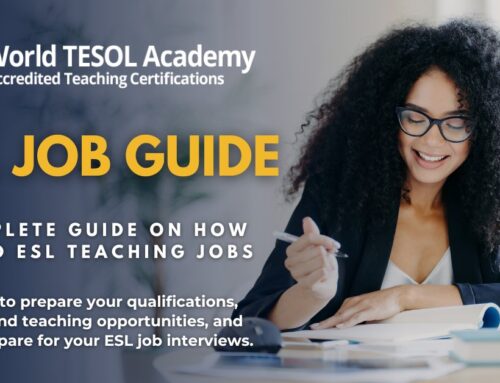
ESL Interview Guide: How to Pass Your Job Interview (Part 2 of 2)
With your well-rehearsed answers and a confident-sounding voice, you are now ready to meet with your interviewers. When you do meet with them, it can be a good idea to pay some extra attention to a few things that can boost your chances of landing the job.
In this part 2 of our ESL job interview guide, we’ll go over a few important things that you should pay attention to during your interview if you wish to leave the best possible impression and ace your interview.
Part 2: How to conduct yourself during the interview
- Arrive (slightly) early
- Learn your interviewers’ names
- Show that you’re well-organized
- Have your key points prepared – important!
- Take local culture into consideration
- Be aware of your body language
- Adopt a positive attitude
- Ask relevant questions
- What to do after your interview
.afasfasfasfsaf
📝 Note: If you haven’t been through part 1 of the ESL job interview guide yet, we recommend that you first go through it in order to learn how to best prepare before you meet with your interviewers.
Meeting with your interviewers:
Let’s now take a look at some of the things you can do during the interview in order to tip the scales in your favor.
1. Arrive (slightly) early
This may feel like a natural point for many people. However, the fact is that different cultures have different attitudes towards punctuality. Fortunately though, when it comes to business culture, people are in general expected to be on time.
In your case as an English teacher, you should definitely make sure that you are on time, as this is a very important trait for teachers. Even if it’s culturally acceptable to be a few minutes late, or if the recruiter ends up being late, you need to make sure that you are present and ready at the appointed time.
The general rule of thumb is to arrive 15 minutes early. This will give you enough time to notify the receptionist that you’ve arrived for your interview and it’ll also give you a few extra minutes to compose yourself and calm your nerves before meeting with the recruiter.
If your interview is in a foreign country then you should make sure to check the directions and estimated time for your route at that particular time of day. This should help you account for potential traffic.
🔎 As a pro-tip, you should spend some time not only researching the directions to your destination, but you could also use the “Street View” setting on Google Maps to see what the area is like.
If you’re arriving by scooter will there be parking nearby? If you’re arriving by foot then where is the nearest station for transport? And is it easy to see which entrance you should go into or do you think you might need to plan some extra time to find out when you arrive?
2. Learn your interviewers’ names
A great way to build rapport with recruiters is to learn their names.
This simple gesture can instantly help to create a more relaxed and friendly atmosphere. If you often struggle to remember people’s names, then it could help to make sure that you repeat their names back to them when they introduce themselves. This will help you to hone in the correct pronunciation and remember it more easily.
Just make sure that you first look up how titles and names are used in the country you are planning on teaching in. Incorrect usage could instead create the opposite effect which may damage your chances of employment.
📝 For example: In Scandinavian countries, the power distance between managers and employees is generally quite short and companies often have flatter organizational structures. In such environments, the use of job titles and name titles like “sir” and “miss” are rarely used.
Conversely, in many East Asian countries, the power distance is greater and companies often have more hierarchical organizational structures. In these environments, you may be expected to use titles, honorifics, etc. As an example, in China and Taiwan, if your interviewer’s surname was “Lee”, it would make a good impression to refer to him as “Mr. Lee” during the interview (or “Lee Xiansheng” if you can use a little bit of Mandarin).

3. Show that you’re well-organized
Schools want to hire teachers that are well-organized. They want to know that you’re the kind of person who will arrive at your class with all of your materials ready and able to start teaching without any delays.
One way that you can demonstrate this trait is by bringing a binder or folder to your interview. Inside this folder should be several copies of your resume (if your resume has multiple pages then you should have these pages stapled in advance) so that you can hand them to the recruiters if they don’t have a copy available during the interview. You should also bring copies of your educational certificates, any reference letters, and your teacher training certificates (such as your TESOL, TEAL, and TEYL certificates). You could also bring examples of any teaching materials that you like to use during your lessons.

Still need your TESOL/TEFL certificate?
In our 120-hour TESOL/TEFL course, you’ll learn how to professionally teach English to speakers of other languages.
If you haven’t enrolled in the course you can do so here:
.
4. Have your key points prepared
There are several key points that a school will be looking for when they interview potential teachers. Some of these points will be the same across most schools, though some schools might have their own specific points that they’ll be looking for.
🌐 General points:
Here are some points that most schools will want to know about:
- Your education background (bonus points if you have a degree, especially if it’s education-related)
- Your teacher training certifications – do you have a PGCE, teaching license, TESOL/TEFL, or other certificates.
- Your teaching experience. If you don’t have teaching experience then you could explain more about what you’ve learned in your teacher training course(s), and explain what personality traits and other experiences that could be useful.
- Your criminal record. If you do have a criminal record then you should prepare what to say here. Traffic violations don’t count.
- Your availability. It’s important to let the interviewers know when you’d be able to start teaching.
- Your aspirations and future plans. Schools will often need to invest a lot of time and money when hiring a teacher. They’ll usually hope that the teacher could stay there for around 3 years so that they don’t need to hire a replacement too soon.
✨ Specific points:
Some schools could also be looking for extra traits when hiring a teacher. Here are some things to look out for:
- Is it a religious school? They might want to have a teacher that shares the same religion and is familiar with their religious tests.
- Does the school also have other vacancies? The school might be hiring for multiple positions. It’s not uncommon for English language teachers to also get positions teaching other subjects (sports and drama being the most common). Following this example, if you had experience in these fields and the school was hiring for such vacancies, you could also mention theese points in your interview.
- Is the position for a particular age range or class size? The school might want to hire a teacher who is comfortable teaching kindergarten-aged children, or perhaps adults instead. They might also want a teacher who can handle smaller more focused classes or larger and more diverse classes.
By researching the school and carefully reading the job advertisement, you should be able to list down the key points that you think the interviewers would be looking out for. You could then look for opportunities to bring these up during the interview.
5. Take local culture and etiquette into consideration
Depending on the country you are applying for a job in, you may face some challenges when it comes to culture and etiquette. What may be considered proper etiquette in your own country, may not be the norm in others.
Take a few minutes and research what might be expected of you when it comes to things such as:
- Greetings
- Use of titles
- Dress codes
- Social norms
Doing just a little bit of research can go a long way, as it can help you avoid embarrassing situations and mishaps.
6. Be aware of your body language
Many people underestimate the importance of body language. Things such as adopting a good posture and maintaining good eye contact while interacting with a recruiter are extremely important. By using open body language and maintaining good eye contact when speaking, you will be able to give off a more confident and inviting vibe which can help give the recruiter a more favorable impression of you.
This is especially important when interviewing with people from other countries. Your interviewer might have limited English language skills, and could be persuaded more by your body language than somebody who natively speaks the same language as you.
If there are several recruiters present, make sure that you maintain good eye contact with each member of the group and not just one single person. By maintaining good eye contact with the entire group, you will be able to show them that you feel comfortable speaking in front of a group – which is one of your core tasks when working as an English teacher.
Here are some examples of good and bad body language:
7. Adopt a positive and enthusiastic attitude
As a teacher, one of your core tasks is to inspire your students throughout their learning journey. Having an upbeat and enthusiastic attitude can help make the learning more fun and engaging. This is why many employers look for teachers that have these qualities.
When you step into the interview room and meet with the recruiter, you should channel the best possible version of yourself and bring out that upbeat and enthusiastic persona that employers seek. Deliver your answers with enthusiasm and passion, so that the recruiter can see that you have what it takes to be a confident representative of their school. Just make sure that you are being genuine – don’t fake it by being too exaggerated as this could make your answers seem insincere.
8. Ask questions
People often forget that an interview is also an opportunity for you to ask questions about the school and the position that they’re hiring for.
By asking questions, you’ll be able to show that you are paying attention to what the recruiter is saying and that you are genuinely interested in the position. Make sure to ask questions that are relevant to the job and that you keep them concise. Asking questions is not only useful for showing interest, but it’s also a very helpful tool for you to see if the position you are applying for actually meets what you are looking for.
Example questions could include:
- How long has the school been established?
- How many students are usually in each class?
- Are there any specific approaches preferred by your school?
- Do you prefer teachers to make their own materials or are materials provided for each lesson?
These kinds of questions could help the interviewer to feel more confident that you’re a serious applicant. It’s still ok to ask about holiday time, overtime, pay, etc. but it’s good to sandwich those questions in between other more positive ones.
After the interview:
After you’re done with the interview, properly thank the recruiter for their time and consideration. It can also be a good idea to send a personalized thank you email to the recruiter within 24 hours after meeting with them. Recruiters often interview multiple candidates each day. If you send them a thank you email, it’s more likely that they’ll take extra notice of you as you’ll still be fresh within their memory.
After this comes one of the tougher parts of the recruitment process – the wait! Patiently waiting for that phone call or email can be tough. A good way to distract yourself is to simply apply for more jobs and schedule more interviews.
What to do if you don’t get a call/email?
You could wait for two or three weeks after your interview and not receive any calls or emails from the school. This would generally mean that they haven’t chosen you this time.
This can be a tough pill to swallow, but it’s also not something that you should get too hung up on. ESL recruiters often receive several hundred applications for a single position. This means that sometimes your application may not make it to the next round due to the sheer volume of candidates the recruiters have to go through.
While most schools won’t send rejection emails, some schools will email to let you know that you haven’t been successful. While it could be frustrating to see it in writing, it’s actually a great opportunity to ask for some feedback that you can then use to improve your tactics for the next interview.
Final thoughts
If you follow the tips and insight provided in this two-part guide, you’ll be able to maximize your chances of impressing employers and landing your dream teaching job. You might find that you make it through your first interview and get hired straight away. On the other hand, you might find that it takes a little longer and you’ll need to stay focused, apply for more positions, and continue to expand your resume in the meantime.
To further boost your chances of getting hired, you could consider taking some of our specialist teacher training courses here: browse courses. We have the standard TESOL/TEFL course that most teachers start with. We also have a TEYL course to further learn about teaching children, a TEAL course to learn more about teaching adults, and a TEOL course to learn extra skills for teaching online. All of these courses teach extra skills and come with dual accredited certificates that can be displayed to employers.
If you have any tips of your own then please leave them in the comments below!










Leave A Comment